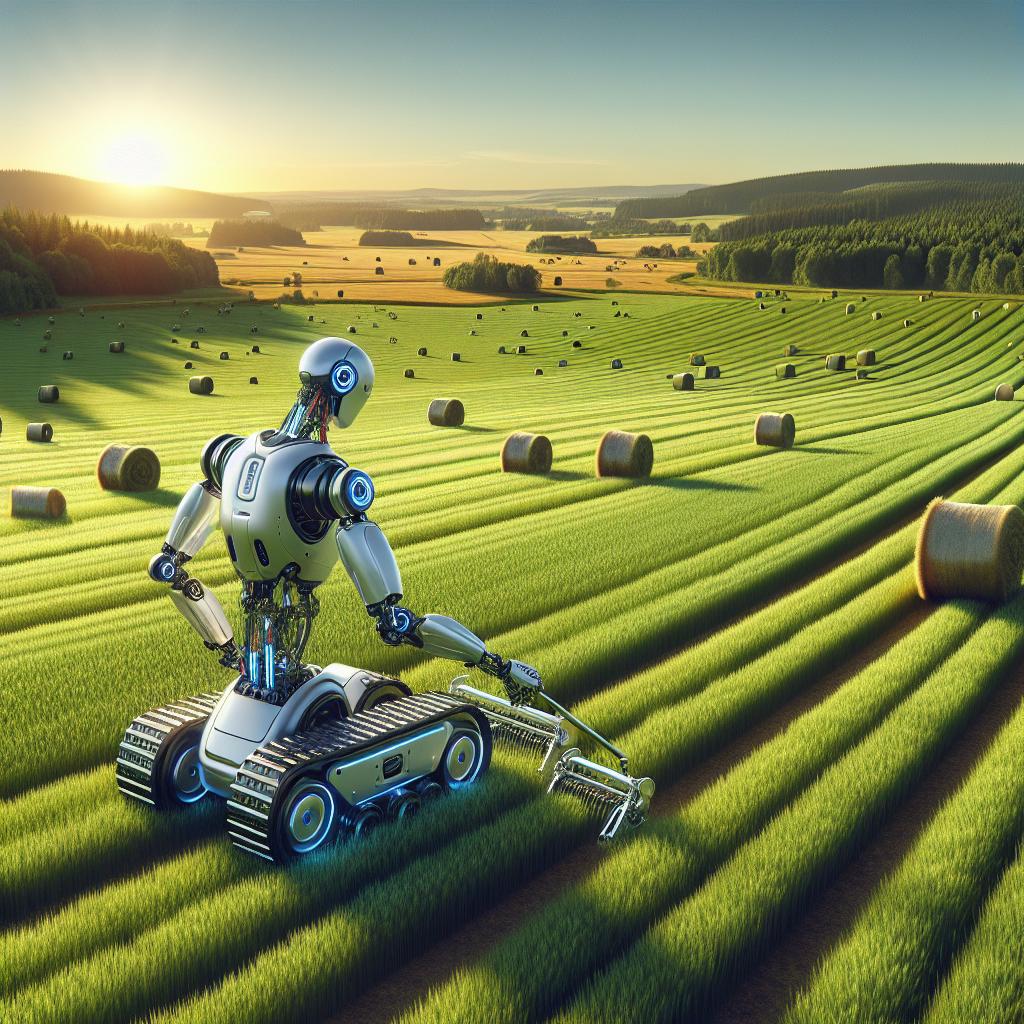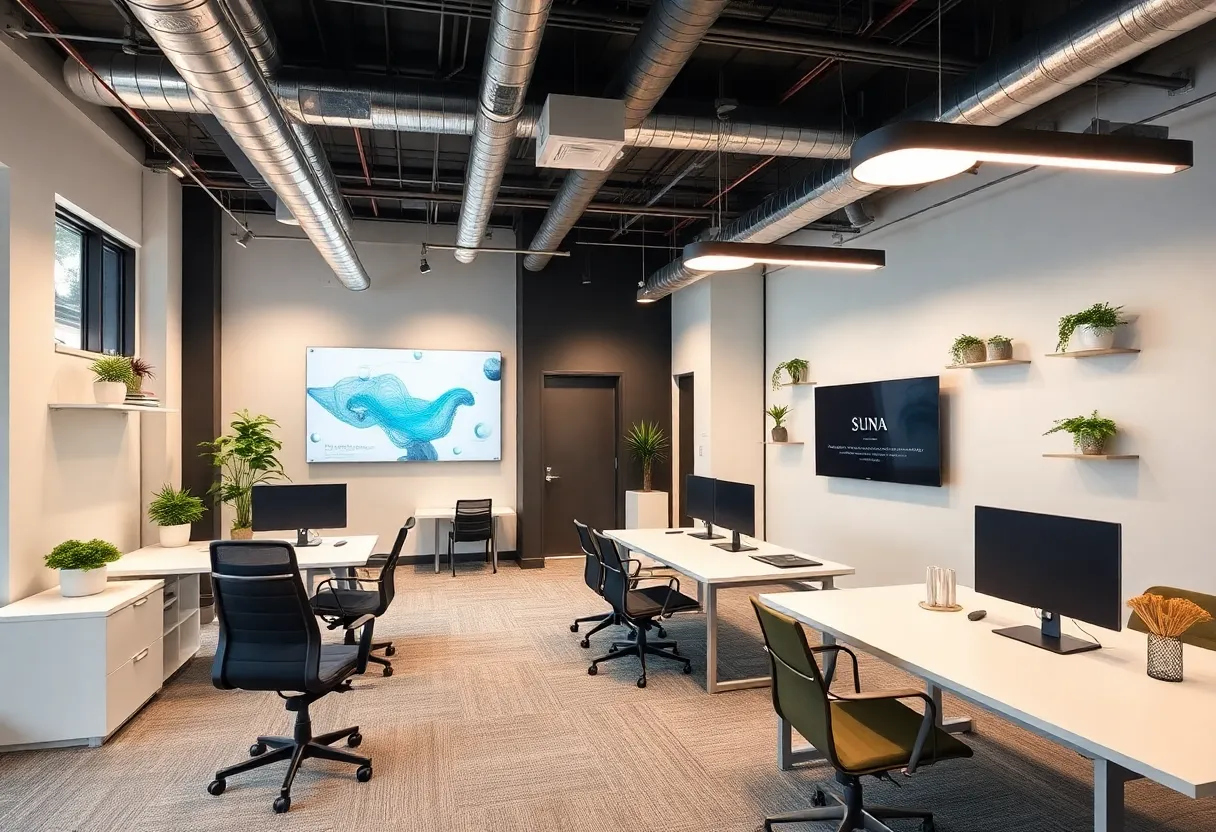Knoxville Welcomes a Farming Robot to Enhance Community Learning and Nutrition
In Knoxville, excitement is growing as the community introduces a new farming robot aimed at improving local nutrition and providing valuable training opportunities. The robot made its debut at the Morningside Community Center on Dandridge Avenue, where it is set to play a significant role in the Edible Forest project initiated by the nonprofit Socially Equal Energy Efficient Development (SEEED).
A Helping Hand in Agriculture
This innovative robot, sourced from Farmbot, is not just a piece of machinery; it boasts the ability to plant seeds, water crops, measure soil moisture, take images, and even remove weeds from raised garden beds. Its introduction marks a major step forward in the efforts to combat food desert conditions in East Knoxville, where access to fresh produce has been limited.
Stan Johnson, the founder and executive director of SEEED, shared the organization’s vision: “These are young people who are unemployed or underemployed. We want to teach them new skills so they can actually learn how to do things differently and make more money with the education they currently have. We want to make sure we’re building a future for our community.”
Filling the Gaps in Nutrition
The Edible Forest, created by SEEED, serves a community within a two-mile radius with no grocery stores offering fresh fruits and vegetables. Since its inception in 2017, the nonprofit has made strides by planting 52 fruit trees, distributing an additional 75 trees, constructing raised beds, and building a greenhouse for public benefit. The robot will support these ongoing agricultural efforts and provide a hands-on learning experience for locals.
STEM Education at the Forefront
During a demonstration on August 12, faculty members from the University of Tennessee showcased the robot’s capabilities. Using a web app, professors and students commanded the robot from a computer, illustrating how technology can enhance agriculture. According to Sai Swaminathan, an assistant professor of computer science, the robot can be tailored to fit the needs of individual users, paving the way for valuable vocational training.
“Some of the skills that people could learn, like 3D printing a small part for the robot or programming its sensors to make specific measurements, can accumulate over time,” Swaminathan explained. “This could lead to credentialing which participants can carry over to various job opportunities that don’t always require formal degrees.”
Support from the University
Swaminathan and his colleague, Sukanya Moudgalya, assistant professor of STEM education, successfully applied for a Challenge Grant from the university’s Division of Access and Engagement. Grants of this kind, yielding up to $3,000, allow researchers to partner with the community on impactful projects, including the purchase of the farming robot, which has a starting price of $2,995.
“Hopefully, there will be more such grant opportunities,” Moudgalya noted. “One of the ways to get funding in academia is to show research and actually demonstrate its positive impact.”
Involvement of Local Schools
Excitingly, professors plan to involve students from nearby schools, including Vine Middle Magnet School and Austin-East Magnet High School, in the Farmbot project. Their goal is to inspire students to explore STEM careers in creative and engaging ways, potentially leading to brighter futures for many in the Knoxville area.
As Knoxville embraces this unique robotic addition, the community looks forward to both enhanced food security and opportunities for local youth to develop skills that will serve them well in the future.
Author: STAFF HERE KNOXVILLE WRITER
The KNOXVILLE STAFF WRITER represents the experienced team at HEREKnoxville.com, your go-to source for actionable local news and information in Knoxville, Knox County, and beyond. Specializing in "news you can use," we cover essential topics like product reviews for personal and business needs, local business directories, politics, real estate trends, neighborhood insights, and state news affecting the area—with deep expertise drawn from years of dedicated reporting and strong community input, including local press releases and business updates. We deliver top reporting on high-value events such as Dogwood Arts Festival, Big Ears Festival, and Knoxville Asian Festival. Our coverage extends to key organizations like the Knoxville Area Chamber Partnership and United Way of Greater Knoxville, plus leading businesses in healthcare, education, and energy that power the local economy such as Covenant Health, University of Tennessee, and Tennessee Valley Authority. As part of the broader HERE network, including HEREBristol.com, HEREChattanooga.com, HEREMemphis.com, and HERENashville.com, we provide comprehensive, credible insights into Tennessee's dynamic landscape.






